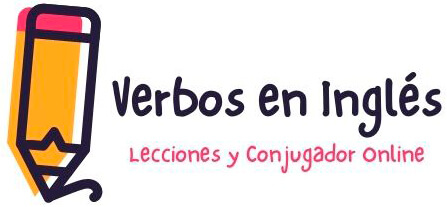Conjugación del Verbo to hibernate
Ver el Índice del Artículo
mostrar
Aquí abajo tienes la Conjugación del verbo to hibernate en inglés. Si tienes dificultad para aprender a Conjugar el verbo to hibernate en sus tiempos verbales, puedes echar mano de esta herramienta.
Anuncios
Después de la tabla de los Verbos Conjugados en Inglés tienes unas anotaciones para que recuerdes cómo se conjugan los verbos en inglés. Quiero que tengas en cuenta varias consideraciones sobre la conjugación del verbo to hibernate:
- En las diferentes columnas que se corresponden a la conjugación de los tiempos verbales verás el tiempo verbal en español y como se dice en inglés (ejemplo: Presente Simple / Present Tense)
- En color verde podrás identificar el Verbo
- En color naranja identificarás el Auxiliar
Presente Simple
Present Tense
- I hibernate
- you hibernate
- she,he,it hibernates
- we hibernate
- you hibernate
- they hibernate
Presente Continuo
Present Continuous
- I am hibernating
- you are hibernating
- she,he,it is hibernating
- we are hibernating
- you are hibernating
- they are hibernating
Presente Perfecto
Present Perfect
- I have hibernated
- you have hibernated
- she,he,it has hibernated
- we have hibernated
- you have hibernated
- they have hibernated
Presente Perfecto Continuo
Present Perfect Continuous
- I have been hibernating
- you have been hibernating
- she,he,it has been hibernating
- we have been hibernating
- you have been hibernating
- they have been hibernating
Pasado Simple
Past Tense
- I hibernated
- you hibernated
- she,he,it hibernated
- we hibernated
- you hibernated
- they hibernated
Pasado Continuo
Past Continuous
- I was hibernating
- you were hibernating
- she,he,it was hibernating
- we were hibernating
- you were hibernating
- they were hibernating
Pasado Perfecto
Past Perfect
- I had hibernated
- you had hibernated
- she,he,it had hibernated
- we had hibernated
- you had hibernated
- they had hibernated
Pasado Perfecto Continuo
Past Perfect Continuous
- I had been hibernating
- you had been hibernating
- she,he,it had been hibernating
- we had been hibernating
- you had been hibernating
- they had been hibernating
Futuro Simple
Future Tense
- I will hibernate
- you will hibernate
- she,he,it will hibernate
- we will hibernate
- you will hibernate
- they will hibernate
Futuro Continuo
Future Continuous
- I will be hibernating
- you will be hibernating
- she,he,it will be hibernating
- we will be hibernating
- you will be hibernating
- they will be hibernating
Futuro Perfecto
Future Perfect
- I will have hibernated
- you will have hibernated
- she,he,it will have hibernated
- we will have hibernated
- you will have hibernated
- they will have hibernated
Futuro Perfecto Continuo
Future Perfect Continuous
- I will have been hibernating
- you will have been hibernating
- she,he,it will have been hibernating
- we will have been hibernating
- you will have been hibernating
- they will have been hibernating
Imperativo
Imperative
- hibernate
- let’s hibernate
- hibernate
Participio Presente
Present participle
- hibernating
Participio Pasado
Past participle
- hibernated
Participio Perfecto
Perfect Participle
- having hibernated
Conjugar todos los Tiempos Verbales
La Conjugación del Verbo es la modificación de ese verbo dependiendo de:
- Qué “persona” hace la Acción
- Cuándo se hace la Acción
- El Género de la “persona” que hace la Acción
- El número o “personas” involucradas en la Acción
- La voz, es decir, si esa persona hace realmente la acción como sujeto o la recibe
- El modo, es decir, la actitud frente a la acción
Conjugar según la Persona
- Primera persona singular – I (Yo)
- Segunda persona singular – You (Tu))
- Tercera persona singular – He/She/It (Él/Ella/Ello)
- Primera persona plural – We (Nosotros)
- Segunda persona plural – You (Vosotros)
- Tercera persona plural – They (Ellos)
Conjugar según la Voz
Los Verbos en Inglés se pueden Conjugar en voz Activa o Pasiva, dependiendo de quién recibe la acción de algo en concreto, ejemplo:
- Voz Activa – Pepucha come tortilla (Pepucha es el sujeto, es quien recibe la acción)
- Voz Pasiva – La tortilla es comida por Pepucha (La tortilla es el sujeto)
Conjugar según el Modo
- Indicativo – Afirma hechos (Me gusta la Fotografía)
- Subjuntivo – nos muestra la actitud sobre algo que estás diciendo (Yo de ti estudiaría más inglés)
- Imperativo – indica una orden (Estudia cada día)
